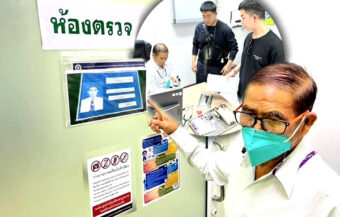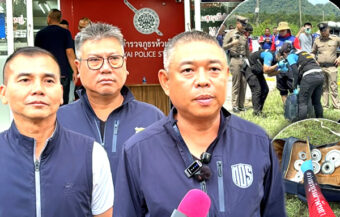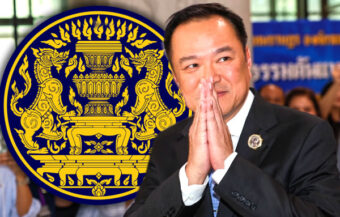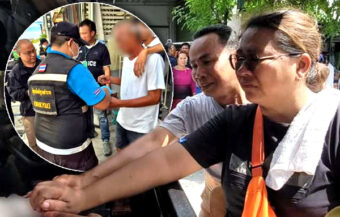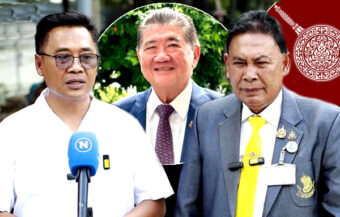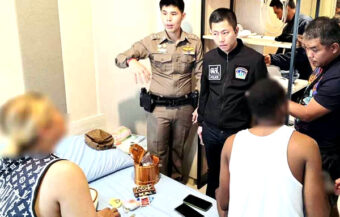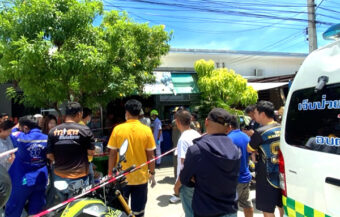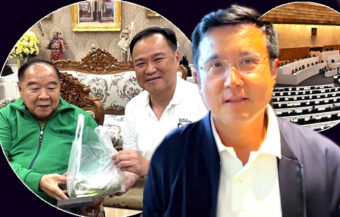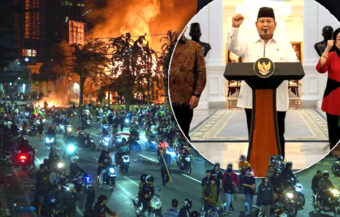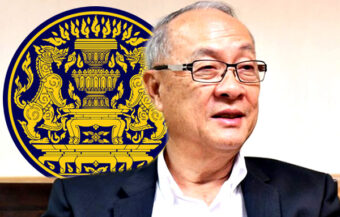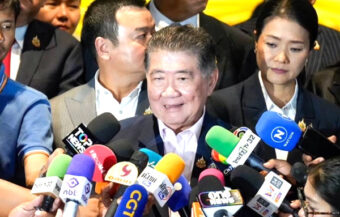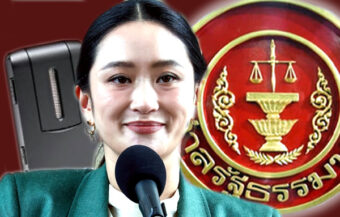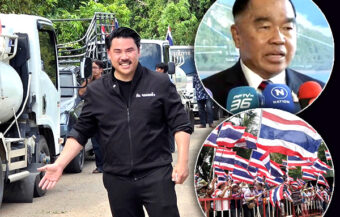Ex PM Thaksin Shinawatra returns to prison. Supreme Court ruled he played the system when first jailed. Tuesday’s drama follows over a week of political shockwaves, leaving Thaksin’s Pheu Thai Party in opposition, facing a new conservative government.
On Tuesday afternoon, former Prime Minister Thaksin Shinawatra was locked up again at Bangkok Remand Prison. The Supreme Court’s Criminal Division slammed his six-month hospital stay as a sham and abuse of privilege. He should never have left prison after August 22nd, 2023, and the court found he deliberately manipulated the system to extend his freedom. All eyes now focus on the Pheu Thai Party, long tied to his political machine. The shockwaves are immediate: just days ago, the progressive People’s Party backed a conservative government under Anutin Charnvirakul, reshaping Thailand’s political order. The question now is blunt — will the public see Thaksin as a manipulator finally held accountable, or as a political martyr? Either way, his return to prison marks a dramatic turning point.
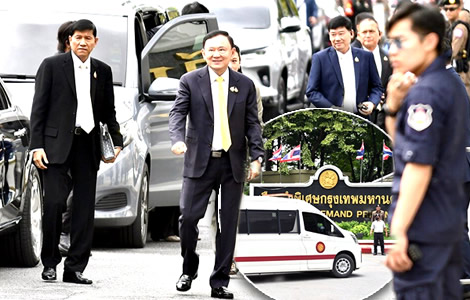
On Tuesday, the Supreme Court’s Criminal Division for Holders of Political Positions handed down a landmark ruling. Former Prime Minister Thaksin Shinawatra was ordered back to prison for one year. The judgment was delivered in a packed courtroom, attracting widespread media attention and public scrutiny.
Thaksin, who returned to Thailand in August 2023, had previously spent only 13 hours in Bangkok Remand Prison. He was then transferred, in controversial circumstances, to the Police General Hospital. The court, however, found this move unjustified and unlawful.
Supreme Court rules Thaksin’s transfer to Police General Hospital was unlawful and prison time never served
According to the ruling, Thaksin did not serve the prison time mandated by law. The Supreme Court concluded that his treatment at the hospital was not warranted under emergency health provisions. Despite claims of chronic illness, the court determined his condition did not require hospitalisation.
Moreover, the court pointed to a deliberate circumvention of prison rules. Thaksin was not even examined by the doctor on duty at the Bangkok Remand Prison Hospital, located just 200 metres away. Instead, he was moved directly to the Police Hospital’s VIP ward on the 14th floor. This decision violated the Corrections Act and related regulations.
Initially, prison staff justified the transfer by citing high blood pressure and chest tightness. Yet, when he arrived at the hospital, Thaksin was not admitted to an emergency room. He was instead placed in a non-emergency, luxury medical suite. Notably, no ECG or cardiologist was assigned on the night of his admission.
By August 24th, medical experts said his condition was stable. Yet he remained in hospital until February 18th, 2024. During this time, a series of memorandums extended his stay using vague or questionable justifications. Surgeries mentioned were minor or elective and unrelated to the initial transfer reason.
Court confirms Thaksin refused necessary surgery and must now serve full one-year sentence
For example, trigger finger and shoulder tendon surgeries were performed during his stay. But the surgery cited as necessary—on his cervical spine—was never carried out. In fact, Thaksin refused the recommended surgery. Instead, he opted for non-urgent procedures, which extended his hospital stay conveniently.
Meanwhile, the Royal pardon granted on August 31st, 2023, reduced his sentence from eight years to one. The court acknowledged this royal decree. However, it firmly rejected attempts to count hospital days as time served. According to Tuesday’s ruling, Thaksin must now serve the full one-year term from scratch.
Immediately following the verdict, police escorted Thaksin from the court. He was taken in a white prison van, license plate 1Nong 7412 Bangkok, to the Bangkok Special Prison. Flanked by two grey Mercedes-Benz vans, the convoy drew intense public and media attention.
Security tight as Thaksin is placed in quarantine at Bangkok Remand Prison after an escorted transfer
Security was tight. Officers from Prachachuen Police Station and Department of Corrections personnel were deployed outside the prison. The entrance to the Bangkok Remand Prison remained closed due to ongoing renovations, cutting off direct media access.
Still, information trickled out. Reports confirmed Thaksin was placed in quarantine, a standard five-day procedure under COVID-19 regulations. During this period, inmates undergo medical screenings and evaluations before being moved to regular detention facilities.
Significantly, this entire prison transfer happened just one day after Thaksin returned to Thailand by private jet. His arrival on Monday was sudden and, to many, unexpected. He had left the country on Thursday for Singapore, but switched to Dubai after leaving Thai airspace.
However, on Friday, he informed his Pheu Thai associates he would return. This he did on Monday, to the consternation of many political opponents and media pundits. Basically, they had predicted he would never return.
Thaksin’s imprisonment arrives amid political upheaval after Anutin Charnvirakul becomes Prime Minister
The timing of Thaksin’s imprisonment is politically explosive. His return and subsequent jailing come just days after Bhumjaithai Party leader Anutin Charnvirakul was named Prime Minister. That appointment has shaken the political balance in Thailand, pushing the Pheu Thai Party into opposition.
Many now speculate on the end of the Shinawatra political dynasty. Conservative voices see the court’s ruling as the final nail. Yet others argue that Thaksin’s bold return—despite knowing jail awaited—may have won him public sympathy.
Crucially, the court’s 31-witness investigation exposed a systemic failure in enforcing prison sentences. It held that the Bangkok Remand Prison warden, the Director-General of the Department of Corrections and medical officials all acted outside the bounds of the law.
The court was unambiguous. Section 55 of the Corrections Act and the 2020 Ministerial Regulations clearly define when and how a prisoner can be moved for outside treatment. These procedures were not followed. Moreover, Thaksin’s continued treatment at the Police Hospital was, in the court’s view, entirely unnecessary.
Hospital days cannot be deducted and Thaksin actively prolonged his stay unlawfully through personal decisions
As a result, the court declared that time spent at the hospital could not be deducted from his sentence. Nor could it be classified as part of his lawful detention. This meant Thaksin was never truly serving his sentence in the eyes of the law.
To further underline this, the court emphasised that the Police General Hospital had failed to follow its own rules. Inmates should be treated in secure, designated areas, unless medically justified otherwise. In Thaksin’s case, no emergency existed. No rapid response or critical intervention was required.
The judgment also dismantled claims that prison officials acted alone. Evidence showed that Thaksin actively participated in medical decisions. He declined surgery for spinal conditions but agreed to minor procedures with longer recovery times. These choices prolonged his hospital stay and delayed real incarceration.
The court concluded that this manipulation of the system allowed Thaksin to avoid imprisonment. He cannot now plead ignorance or deflect blame onto the doctors. The pattern of behaviour, said the court, reflected a clear intent to evade the law.
Tuesday’s judgment is now being seen as a stern warning. It signals that the Supreme Court is willing to reassert its oversight authority. Even former prime ministers are not exempt from scrutiny.
Pheu Thai faces a new political reality as Thaksin’s jailing may reshape opposition and voter sentiment either way
Meanwhile, the Pheu Thai Party faces a new political reality. Ousted from power, it must navigate its role as opposition amid dwindling influence. The return and jailing of its founder could either revive its support or signal terminal decline.
Upcoming opinion polls will be closely watched. The People’s Party, now aligned with a conservative-led coalition, may suffer backlash. Some of its progressive base may swing back toward Pheu Thai, particularly after this week’s dramatic events.
Thaksin stuns Bangkok’s political establishment by returning from Dubai ahead of his Tuesday hearing
Thaksin tells Pheu Thai leaders he will return on Monday to face Tuesday’s Supreme Court hearing
Has Thaksin flown the Thai coop for the second time? All will be revealed next Tuesday, before the court
Nevertheless, public sentiment remains divided. Some see Thaksin as a political martyr. Others view him as a cunning operator who tried to exploit the system. What’s clear is that this case has reignited fierce debate across the country.
In the weeks to come, much will depend on how Thaksin adapts to life as a prisoner. For now, the Department of Corrections says he will receive the same treatment as other inmates. However, past events suggest many will remain sceptical.
As Thailand absorbs the shock of this ruling, the legacy of Thaksin Shinawatra once again dominates national headlines. Whether this marks the end—or a new beginning—remains to be seen.
Join the Thai News forum, follow Thai Examiner on Facebook here
Receive all our stories as they come out on Telegram here
Follow Thai Examiner here
Further reading:
Thaksin stuns Bangkok’s political establishment by returning from Dubai ahead of his Tuesday hearing
Thaksin tells Pheu Thai leaders he will return on Monday to face Tuesday’s Supreme Court hearing
People’s Party meeting on Monday ended in chaos as it failed to decide on who it will support for PM
Strong case for Chaikasem Nitisiri to lead an interim government tasked with Constitutional change

